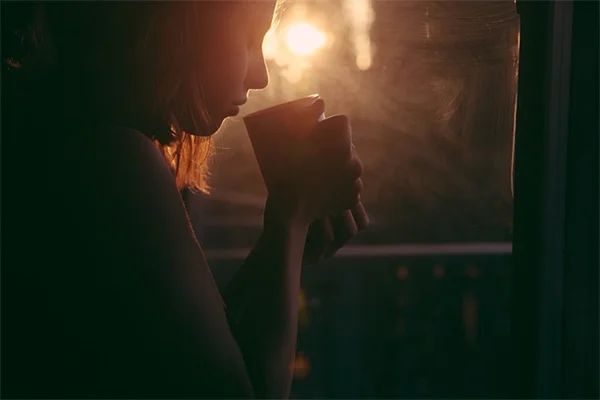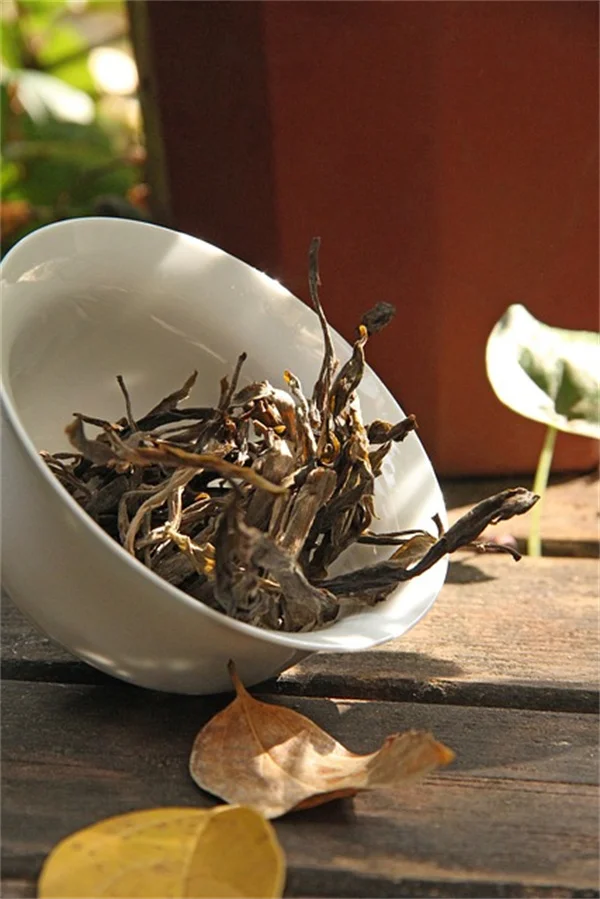How can you protect yourself from dangerous wildfire smoke in Los Angeles? The answer is simple: you need to take immediate action. Right now, as wildfires rage across Southern California, that thick haze isn't just annoying - it's packing microscopic particles that can seriously damage your lungs and overall health. Experts confirm wildfire smoke exposure increases risks for respiratory infections, heart problems, and even long-term conditions like cancer. But don't panic! We've got your back with practical, doctor-approved strategies to keep you safe. Whether you're dealing with the current LA fires or preparing for future smoke events, these protection methods will help you breathe easier (literally). From choosing the right air purifier to creating an emergency evacuation plan, we'll walk you through exactly what you need to know - in plain English, no medical degree required!
E.g. :Typhus Outbreak in LA: 3 Deaths & How to Stay Safe
- 1、Wildfire Smoke: The Silent Health Threat You Can't Ignore
- 2、Your Action Plan Against Wildfire Smoke
- 3、Smart Strategies for When You Must Go Outside
- 4、Boosting Your Body's Defenses
- 5、Emergency Preparedness: Better Safe Than Sorry
- 6、Turning Crisis Into Opportunity
- 7、The Hidden Economic Impact of Wildfire Smoke
- 8、The Unexpected Ways Smoke Changes Daily Life
- 9、Technological Solutions on the Horizon
- 10、Cultural Shifts in Smoke Country
- 11、Turning Adversity Into Action
- 12、FAQs
Wildfire Smoke: The Silent Health Threat You Can't Ignore
Hey there! If you're reading this, chances are you're dealing with that nasty wildfire smoke blanketing Los Angeles. I get it - the air looks like someone put a sepia filter on reality. But here's the deal: this isn't just about bad visibility. That smoke contains microscopic particles that can seriously mess with your health.
Why Wildfire Smoke is Worse Than You Think
Ever wonder why your throat feels scratchy after being outside? That's your body screaming, "Hey! We're under attack!" When smoke particles invade your lungs, your immune system goes into panic mode. Dr. Shah from Wyndly Allergy Care explains it like this: your body treats smoke particles like tiny invaders, triggering inflammation that can lead to serious breathing problems.
Now, here's something that might surprise you: wildfire smoke doesn't just affect your lungs. That carbon monoxide in the smoke? It's like a oxygen thief in your bloodstream. Imagine your red blood cells as delivery trucks carrying oxygen - smoke basically hijacks these trucks, leaving your organs gasping for air. Not cool, right?
The Long-Term Risks You Should Know About
Think short-term exposure is bad? The real danger comes when you're constantly breathing this junk. We're talking increased risks for:
| Health Condition | Risk Increase |
|---|---|
| Asthma Attacks | Up to 40% higher |
| Lung Infections | 3x more likely |
| Heart Problems | 15-25% increase |
And here's a scary thought: prolonged exposure might even increase cancer risks. That's why taking precautions isn't just about comfort - it's about protecting your future health.
Your Action Plan Against Wildfire Smoke
Okay, enough doom and gloom. Let's talk solutions! I've put together a battle plan to help you breathe easier during these smoky days.
 Photos provided by pixabay
Photos provided by pixabay
Knowledge is Power: Understanding Air Quality
Did you know there's a simple way to check if it's safe to go outside? The Air Quality Index (AQI) is like a weather report for your lungs. Here's the breakdown:
AQI under 50: Go ahead, take that jog! The air is cleaner than a hospital operating room.
AQI over 300: Stay inside! The air outside is basically liquid smoke at this point.
Pro tip: Just Google "AQI [your zip code]" for real-time updates. Easy peasy!
Creating Your Smoke-Free Sanctuary
Your home should be your safe haven from the smoke. Here's how to make it happen:
Air purifiers are worth every penny - but not all are created equal. Look for HEPA filters (they trap the smallest particles) and make sure it's the right size for your room. A tiny purifier in a large living room is like using a thimble to bail out a sinking boat!
And here's something most people forget: check for sneaky smoke entry points. That gap under your front door? Perfect smoke highway. Solution? A damp towel along the threshold works wonders.
Smart Strategies for When You Must Go Outside
Let's face it - sometimes you gotta brave the outdoors. Here's how to do it safely.
The Right Mask Makes All the Difference
That cloth mask from 2020? Useless against smoke. You need an N95 or KN95 - they're like bouncers for your lungs, keeping out 95% of harmful particles.
But here's the kicker: no mask is 100% effective. The best protection is still limiting outdoor time. Think of masks like seatbelts - they help, but you still want to avoid crashes!
 Photos provided by pixabay
Photos provided by pixabay
Knowledge is Power: Understanding Air Quality
Ever notice how your car smells like smoke after driving? That's because most people use AC wrong during fires. Always set it to "recirculate" - this keeps outside air out and recycles your cabin air instead.
Same goes for home AC units. That "fresh air" setting? Turn it off! You don't want fresh smoke coming in.
Boosting Your Body's Defenses
While you can't control the air quality, you can strengthen your body's ability to handle it.
The Wellness Trifecta: Sleep, Hydration, Nutrition
Here's a question: Why does everything feel worse when you're tired? Because sleep is when your body repairs smoke damage! Aim for 7-9 hours to give your lungs fighting chance.
And water! It's not just for thirst - hydration helps your body flush out toxins. Think of it like giving your cells a daily car wash.
As for food? Load up on antioxidants (berries, leafy greens) - they're like little firefighters inside your body.
Stress Management Matters More Than You Think
Wildfires are stressful, but did you know stress actually weakens your lung defenses? Try simple breathing exercises (ironic, I know) to keep calm. Even 5 minutes of deep breathing can help.
Emergency Preparedness: Better Safe Than Sorry
Wildfires are unpredictable. Having a plan could literally save your life.
 Photos provided by pixabay
Photos provided by pixabay
Knowledge is Power: Understanding Air Quality
Pack these essentials in an easy-to-grab bag:
- Medications (7-day supply)
- Important documents (IDs, insurance)
- N95 masks (at least 5 per person)
- Portable air purifier (if possible)
And here's a pro tip: Keep your gas tank at least half full. You don't want to be stuck in evacuation traffic with an empty tank!
Know Your Safe Zones
Identify multiple routes to cleaner air areas. Sometimes the wind changes direction, so have options. Local community centers often serve as clean air shelters during bad smoke events.
Turning Crisis Into Opportunity
While wildfires suck, they can be a wake-up call about our respiratory health.
Making Clean Air a Priority
Why wait for wildfires to care about air quality? Consider investing in home air quality monitors. They're surprisingly affordable and can alert you to problems before you feel symptoms.
The Silver Lining
Here's something positive: Going through this makes you more aware of your breathing. Simple practices like mindful breathing can improve your health long after the smoke clears. Pretty cool bonus, right?
Remember, protecting yourself from wildfire smoke isn't just about surviving the season - it's about thriving despite the challenges. Stay safe out there!
The Hidden Economic Impact of Wildfire Smoke
You know what's wild? While we're all worrying about our health during wildfire season, there's a whole economic side to this story that barely gets talked about. That hazy air is costing businesses billions, and guess what? Those costs eventually trickle down to all of us.
How Smoke Affects Local Businesses
Picture this: It's peak tourist season, but the sky looks like a scene from Blade Runner. Outdoor cafes sit empty, hiking trails gather dust, and souvenir shops might as well put up "Going Out of Business" signs. Last year in Oregon, tourism revenue dropped 38% during the worst smoke weeks - that's money that never comes back to those small business owners.
But it's not just tourism taking a hit. Construction crews can't work safely outside, delivery times slow to a crawl, and even office workers become less productive when they're dealing with headaches from poor air quality. The ripple effects are insane when you really think about it!
The Healthcare Costs We All Share
Ever wonder who pays for all those extra ER visits during smoke season? We all do, through higher insurance premiums and taxes. The numbers don't lie:
| Medical Issue | Average Treatment Cost | Annual Cases Increase |
|---|---|---|
| Asthma ER Visits | $3,500 | 12,000+ |
| COPD Complications | $7,200 | 8,500+ |
| Cardiac Events | $15,000 | 3,200+ |
And get this - these are just the immediate costs. We haven't even started talking about long-term care for chronic conditions caused or worsened by smoke exposure!
The Unexpected Ways Smoke Changes Daily Life
Beyond health and money, wildfire smoke reshapes our routines in ways you wouldn't believe until you've lived through it.
Parenting in the Smoke Apocalypse
How do you explain to a five-year-old why they can't play outside for weeks? Parents become masters of indoor entertainment real quick. I've seen families turn living rooms into obstacle courses and basements into mini-golf courses. Creativity flourishes when the air quality stinks, I guess!
The real challenge comes with school schedules. Some districts cancel outdoor recess at AQI 100, others wait until 150. There's no national standard, so parents have to become amateur air quality experts overnight. Pro tip: Pack extra masks in your kid's backpack - they'll lose at least two per week!
The Dating Scene Gets Complicated
Imagine trying to plan a romantic evening when the air outside could qualify as a biological weapon. Dinner with a view? Nope. Stargazing? Forget about it. 2020's wildfire season actually caused a spike in breakup rates in California - apparently being trapped indoors for months tests relationships in unexpected ways!
On the flip side, some couples bonded over DIY air filter projects. Nothing says romance like building a Corsi-Rosenthal box together! Who knew home improvement could be the new dating trend?
Technological Solutions on the Horizon
The silver lining? Wildfire smoke is driving some seriously cool innovations that might change how we live with climate change.
Smart Homes Get Smarter About Air
Why should your thermostat be the only smart device in your house? New systems can now:
- Automatically close windows when smoke is detected
- Adjust air purifier settings based on real-time outdoor AQI
- Alert you when indoor CO2 levels get too high from being sealed up
The best part? These systems learn your habits. After a few smoke seasons, they'll know exactly when to ramp up filtration before you even notice the haze!
The Rise of Community Air Quality Networks
Here's something brilliant: neighborhoods are banding together to create hyperlocal air quality maps. Using affordable sensors, these networks provide block-by-block readings that are way more accurate than regional reports. In Portland, one community used this data to identify a "clean air corridor" for kids walking to school - how awesome is that?
These networks also help scientists track how smoke moves through urban areas. The data could revolutionize how we design cities to better handle smoke events in the future!
Cultural Shifts in Smoke Country
After enough smoky summers, something fascinating happens - communities develop entirely new ways of living with this reality.
The New Normal of Seasonal Planning
Why do summer camps now have "smoke contingency plans"? Because parents demand them! Activities that used to be summer staples now need indoor alternatives. Swimming lessons might move indoors, soccer camps add air quality breaks, and outdoor concerts book backup indoor venues.
Even wedding planners have adapted. I know a couple who scheduled their outdoor ceremony for 7 AM because smoke tends to be lighter in early morning. Now that's commitment to your big day!
Smoke Season Fashion is a Thing Now
Forget pumpkin spice lattes - the real seasonal indicator is when designer masks start appearing in store windows. What began as purely functional has become a fashion statement. Last year's "must-have" accessory? Masks with replaceable filters in seasonal colors.
And let's talk about the rise of "smoke chic" home decor. Air purifiers are getting sleeker, HEPA filters come in pretty patterns, and suddenly that industrial-chic look works perfectly with your new $600 air cleaning system!
Turning Adversity Into Action
Here's the inspiring part - many people are using their smoke experiences as motivation to make real change.
The Citizen Science Movement
Ever thought you could help NASA track wildfires? Now you can! Apps like Smoke Sense let ordinary people report smoke impacts in their area, creating invaluable data for researchers. It's like being a storm chaser, but for air quality!
Schools are getting in on it too. Science classes across the West now include air quality monitoring projects. Kids who grew up with smoke are becoming the next generation of environmental scientists - talk about making lemonade from lemons!
Community Support Networks
Nothing brings people together like shared adversity. I've seen neighborhoods create:
- "Clean air caravans" to shuttle vulnerable residents to cleaner areas
- Mask-sharing programs for those who can't afford N95s
- Community cooling centers with industrial air scrubbers
The best part? These connections last long after the smoke clears. What starts as emergency response often turns into lasting community bonds!
E.g. :Safety Guidelines: Wildfires and Wildfire Smoke | Wildfires | CDC
FAQs
Q: How dangerous is wildfire smoke for healthy people?
A: Even if you're the picture of health, wildfire smoke doesn't play favorites. Those tiny particles bypass your body's natural defenses, causing immediate issues like burning eyes, sore throat, and headaches. Long-term exposure can lead to reduced lung function and increased vulnerability to respiratory diseases. We've seen perfectly healthy athletes end up in urgent care after intense workouts in smoky conditions. The scary part? Damage can accumulate silently over time. That's why monitoring AQI levels and limiting exposure matters for everyone - not just those with existing conditions.
Q: Do cloth masks protect against wildfire smoke?
A: Here's the hard truth: your favorite cloth mask is about as useful as a screen door on a submarine when it comes to wildfire smoke. Only N95 or KN95 respirators can filter out those dangerous PM2.5 particles. But even these aren't perfect - they need to fit snugly (no gaps!) and become less effective when damp from breathing. We recommend keeping several on hand and replacing them after 8-10 hours of use. Remember though, masks are your last line of defense - staying indoors with clean air is always the better option.
Q: How can I tell if the air quality is dangerous?
A: Checking air quality is easier than checking the weather! Just Google "AQI" plus your ZIP code for real-time updates. Here's how we interpret the numbers: 0-50 means party on (metaphorically), 51-100 is okay for most people, 101-150 starts affecting sensitive groups, and anything over 150 means everyone should limit outdoor time. Pro tip: Bookmark purpleair.com for hyperlocal sensors that show neighborhood-level differences - sometimes one block can be significantly worse than another!
Q: What's the best air purifier for wildfire smoke?
A: After testing dozens of models during California fire seasons, we swear by purifiers with true HEPA filters and activated carbon. Size matters too - a small purifier in a large room is like using a thimble to empty a swimming pool. For most bedrooms, a CADR rating of 150+ works well; living rooms need 300+. Our top picks include Coway Airmega and Blueair models - they're workhorses that actually move enough air to make a difference. Don't forget to keep windows closed and run the purifier continuously during smoke events!
Q: How long do wildfire smoke health effects last?
A: This depends on your exposure level and overall health. Most healthy people recover from short-term exposure within a few days once the air clears. But here's what keeps us up at night: repeated exposures can cause cumulative damage that might not show up for years. That's why we're so passionate about protection - it's not just about getting through this week's smoke, but preserving your lung health for decades to come. If you're experiencing persistent coughing, wheezing, or shortness of breath days after the smoke clears, definitely see a doctor.

